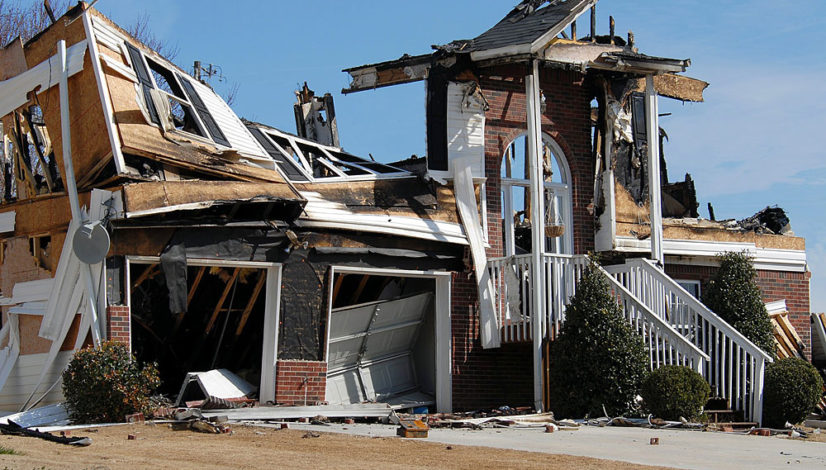Fire Damage Insurance claims
Property insurance as a concept began as a response to fire damage. Though not the most common damage claims for insurance companies, fire damage is unique in its destructive power and heavy cost. Most commonly house fires begin in the kitchen, but electric wiring if old or faulty can also begin devastating fires in the home or business. Worse still, even if the property is only partially damaged and not completely destroyed, fire damage brings others along with it, including water (from burst or exposed plumbing), smoke, ash, mold, and carbon monoxide poisoning. Fire damage can even affect nearby properties, not just the ones that were burned themselves, as being exposed to such extreme heat (from say, a neighboring property catching fire) can dangerously weaken the structural integrity of the building.
Home or property fires can quickly become lethal, therefore any property insurance plans, must include a complete and comprehensive process to submit and resolve fire damage insurance claims. In fire damage cases in particular, speed of the process is of the essence as the claimant may be left without a home or business. Therefore there are certain concrete steps claimants must take to ensure their due compensation:
- If the claimants are forced to evacuate due to the dangerous conditions, they may not have grabbed essentials like toiletries or clothes for school and work, and so may, and should, ask for an advance against the ultimate fire insurance claim to hold them over until the claim is finally resolved, and these living costs should be recorded
- Once the physical safety of the claimants are assured, an insurance claim should be submitted ASAP and the insurance company pressed to send an adjuster. This claim should include accounts of the fire, injuries (if any) sustained, the remaining condition of the property, and a police report
- Claimants are advised to make as comprehensive a list as soon as they can of all the property that was lost, so as to compile accurate damages costs
- If possible, claimants may be asked to mitigate damages to the property such as boarding up and covering holes in the walls and roof and extinguishing any remaining embers
- Obtain your own estimates of the repair costs, three independent estimates from contractors are a good start
- If your insurance company is unresponsive, consider contacting a public insurance adjuster




